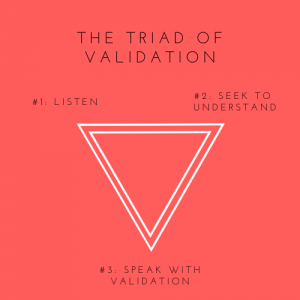“Remember that everyone you meet is afraid of something, loves something, and has lost something” – H. Jackson Brown, Jr.
We are all human. Each person across the globe is experiencing our current pandemic behind a different lens. And yet, behind each perspective, we share a common need to communicate. A desire to share information, insight, thoughts, new ideas, our passions. We share a need to be heard and understood. But, despite acknowledging this concept, several questions remain.
Who is listening to your needs, your story?
Are you listening to the needs of others?
In our current environment, being understood has become increasingly difficult. Even more important, how we cope with our inability to share is something we don’t talk about enough. Without realizing it, a cyclical pattern emerges and days, weeks, months pass by us and we have yet to recognize that the people around us are going through the same challenges.
For example, a survey administered by medical health provider, Ginger, stated that 7 in 10 professionals are currently experiencing the most stressful time in their careers (Gavidia, 2020). Behind our false sense of reality, it’s difficult to process that people in your workplace, family, and external relationships are struggling. For this reason alone, it is why you, me, and every person has a responsibility out of respect for our fellow humans to seek ways we can listen and empower others to share.
If you’re wondering what validation looks like, it’s as simple as three steps.

Three Steps to Validation
Step 1: Listen – Take the time to develop yourself into becoming a good listener. A good listener will do more than just use their ears to hear what another person is sharing. The best kinds of listeners will make engaged statements such as, “I hear you., that has to be frustrating.” This type of listening takes practice but can help you become a trusted person that people are willing to confide in.
Step 2: Seek to understand – Don’t just listen. Listen with concern and care. Talk, interact, show your willingness to confide in the person disclosing information to you. This skill takes patience and a desire to know more about the challenges and struggles someone is going through.
Step 3: Speak with Validation – What does this look like? It starts with your desire to learn and engage more, to dig deeper in the frustration and challenges being expressed to you. Statements such as, “tell me more about…’ or ‘That is tough.’ ‘Tell me why this happened?” These two forms of inquisitive statements help people recognize YOU CARE, while getting them to delve more into their ongoing problem. For example, I lived in West Africa after graduating from my undergraduate degree and when speaking with my community members in Jerigu, Ghana, the leaders of the community would always say, “I see you,” after a conversation. This simple, yet powerful statement made me feel valued and important within my local community.
Validation in Action
With my final thought, I challenge you to revisit the ways you hold a conversation, seek dialogue, and lastly, listen with intention. It’s easy to talk about your problems, but choosing the selfless path to inquire about someone else’s challenges or stressors, is easier and more rewarding than you think. You might just find yourself seeking new ways to validate conversations every chance you get, helping form a new way to listen and serve those around us in our communities.
Burn brightly,
Chandler Mulvaney
References:
 0
0
